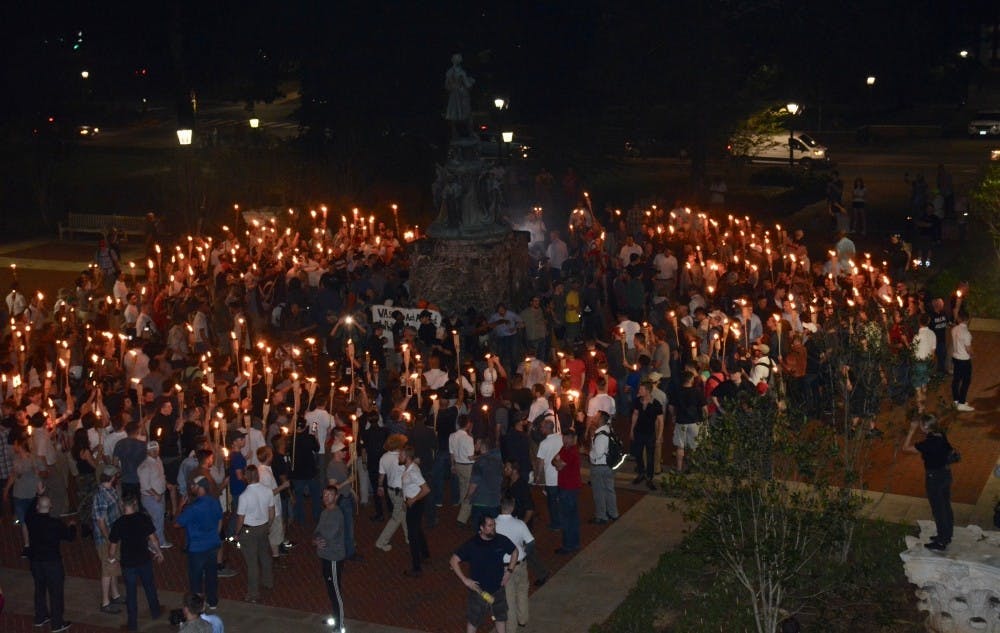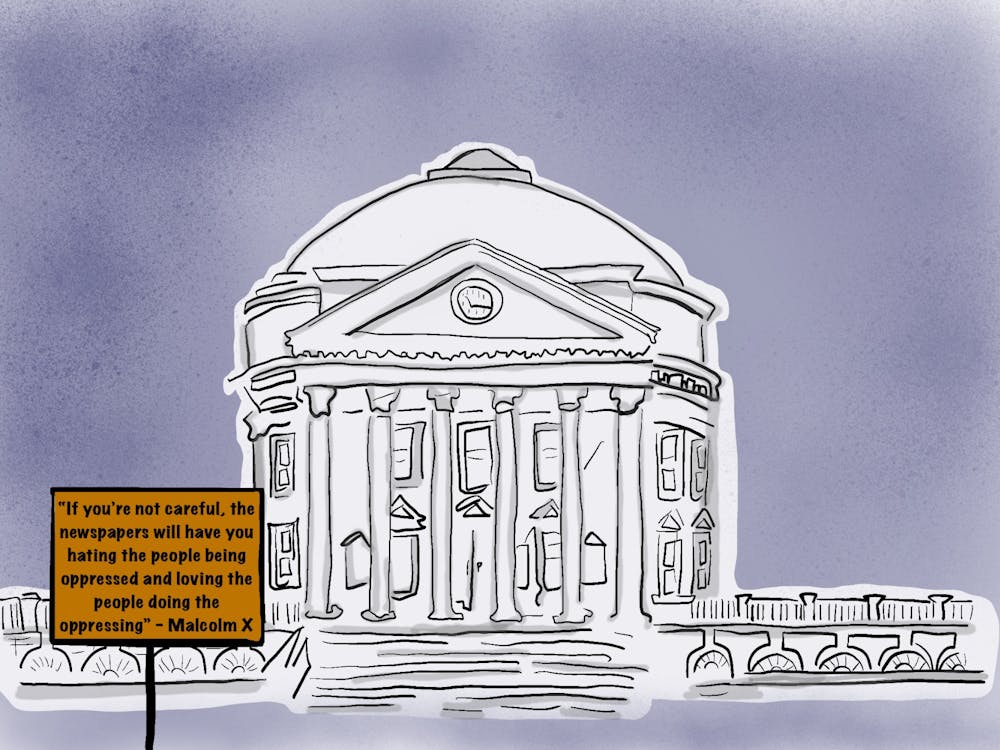Just over one year ago, Charlottesville’s name became synonymous with hate. Simmering racial tensions and ugly anti-Semitic prejudice erupted in our small city, and overnight, Charlottesville became #Charlottesville. Though shocking, the Aug. 12 “Unite the Right” rally was more a revelation than it was an aberration — a revelation of this country’s, and indeed, Charlottesville’s, inveterate prejudice. But I would be remiss not to acknowledge that the events of last August have also encouraged a national reckoning of sorts, and for me, an opportunity for deep introspection. For the past year, I have grappled with the odious events of last August as a student, as a Jew, and as an ally against hate.
It is imperative that we remember to oppose bigotry wherever — and against whomever — we see it targeted. Nazis descended upon our campus shouting “Jews will not replace us!” and the old Nazi German chant of “Blood and Soil.” While I witnessed the chaos on television from the comfort of my own home, it was made clear to me that Jews are not included in these white supremacists’ utopian vision of a white ethno-state.
Yet let us not make the mistake of assuming anti-Semitism should be a problem solely ascribed to the far political right; it is far too easy to condemn Nazi chants and swastikas. But it is far more difficult to root out the more insidious anti-Semitism on the political left, which can be often masked as anti-Zionism. Of course, criticism of Israel per se is not problematic — in fact, it is morally imperative. However, a generalized loathing of Israel and a disdain for its existence is troubling. And though I vehemently detest Israel’s ongoing occupation and its expanding settlements in the West Bank, I am not willing to challenge Israel’s right to exist, nor am I willing to indict all Israelis, or all Jews, for the Israeli government’s grave moral transgressions. My status as a Jew does not implicate me in the injustices perpetrated against the Palestinian people, nor does my support for Israel preclude me from criticizing its government’s policies. As we obfuscate the fine line between legitimate criticism of Israel and anti-Semitism, we help to create an environment in which anti-Semitism is tolerated.
At this university, a deep-seated prejudice against Jews has reared its head several times recently. I was told that, despite my frequent criticism of the Israeli government’s policies, my support for Israel as a country signifies my complicity in genocide. We also saw the University’s Minority Rights Coalition sidestep the plight of Jews when it denied the Jewish Leadership Council full membership status in its organization as a result of the group’s hesitance to dissociate itself from Israel. I identify as a progressive, I criticize the Israeli government, but I am not blind — and I will not be blind — to a palpable bias against Jews. To fight hate, we must first recognize it, and we must name it, lest we permit malignant prejudice to undo all of the progress we have made.
I stand by my fellow minorities as an ally. Who will stand by me? As we move forward from the August 2017 anniversary, my plea is rather simple — stop alienating your allies.
Griffin Asnis is a third-year student in the College of Arts and Sciences.
Correction: This article previously had an incorrect first sentence due to an editing error. The op-ed has been updated to fix the first paragraph.





